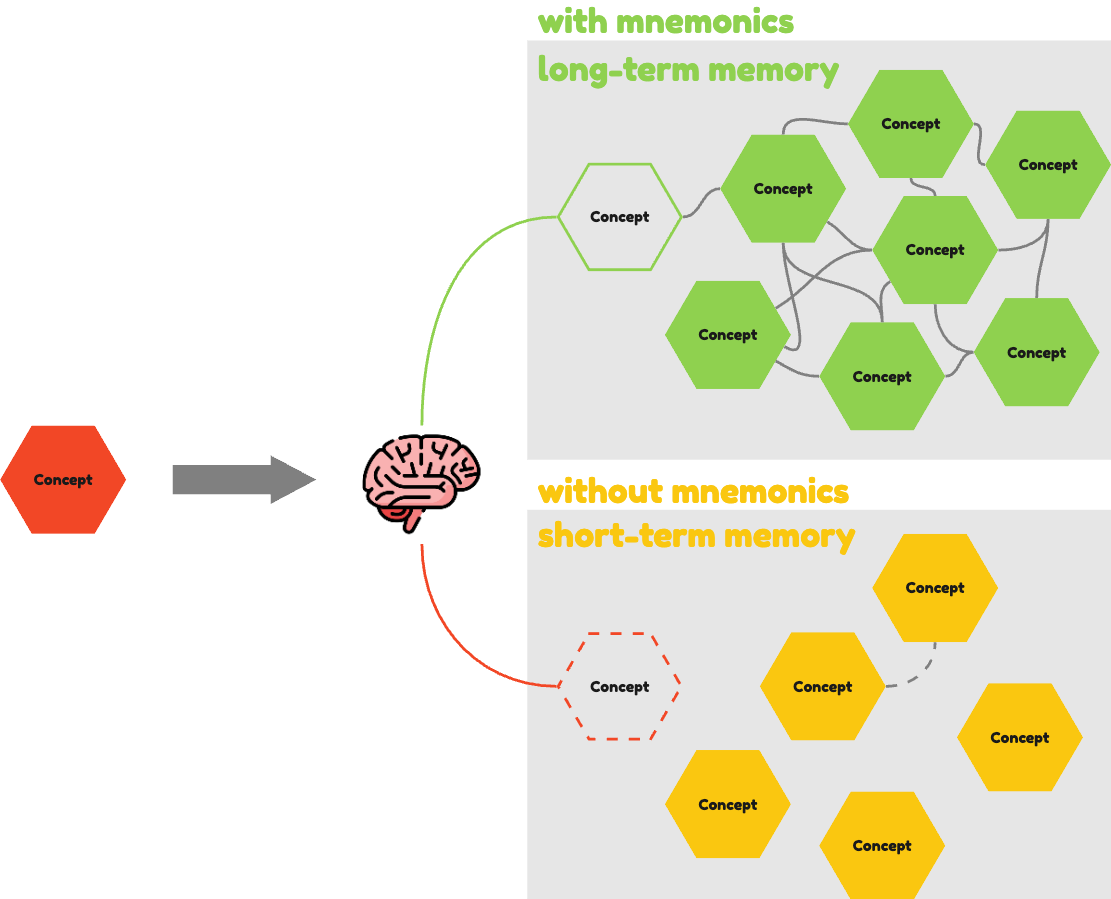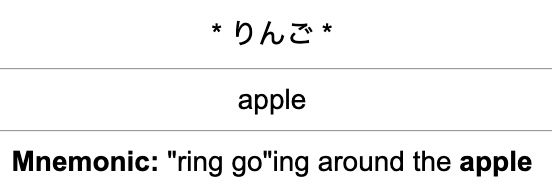A Smart Way to Remember
Ever struggled remembering a new word or concept? Mnemonics are one strategy to help you remember new information by linking it to something you already know.
How Mnemonics Work
Think of your memory like a web of interconnected concepts.
Now, picture a FIRETRUCK. You can probably see it in your mind. Bright colors, flashing lights, and sirens. That's because you have strong, reinforced connections to this concept.
Now, picture a WUG.
...Nothing?
Probably not easy, right? That's because you've never heard of a WUG before and you have no connections to it. Unless you're into linguistics, then you know.
If you can simulate the connections in your brain by linking new concepts to concepts you already know, you create a mnemonic to help you remember the new concept and move it into long-term memory sooner.

Think about mnemonics as temporary supports or bridges between what you want to know and what you already know.
You link a new concept to an existing one, and use the known concept until, eventually, the mnemonic fades away and you're left with an imprint of the new concept in your long-term memory.
How to Use Mnemonics
- Choose a concept you want to remember.
- Choose a concept you already know that is in some way related to the concept you want to remember.
- Create a mental image that links the two concepts.
- Review the image in your mind a few times.
- Use the image to recall the concept you want to remember.
How to Use Mnemonics for Language Learning
Here are some ways you can use mnemonics to help you learn languages:
- Vocabulary: Associate a new word with a word in your native language that sounds similar.
- Grammar: Create a mental image that represents a grammar rule, or draw a picture that represents the rule.
For vocabulary, it can be helpful to link both a sound and an image to the word you want to remember. This way, you're creating multiple connections to the new word.
Example Mnemonic
- Concept to remember: りんご (ringo, the Japanese word for "apple")
- Concept you know: Ring
- Mental image: Picture a ring going around an apple
- Review: Picture the ring going around the apple a few times
- Recall: When you want to remember the word for "apple", think of the ring going around the apple
Bonus Tip: Use Software To Assist You
If you use a

If you use a structured learning system like
More About this Strategy
Read more about vocabulary strategies in my blog on climbing the vocabulary mountain.